When we think of community involvement and participation in the 21st century, it is impossible not to consider the importance of access to information technology and the use of social media as key elements of this. The Rix Centre for example has worked over a number of years to improve access for people with learning [read the full story…]
Involvement in risk management process wanted by majority of sample of people with learning disabilities
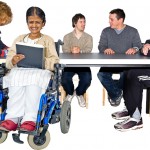
Risk management is an integral part of supporting people with learning disabilities. The researchers in this study were interested to look at the involvement of people in making decisions about risks in their lives. They wanted to look at the how staff considered the individual’s ability to assess the associated risks and make an informed [read the full story…]
Lower use of mental health services by South Asian people with learning disabilities than white British comparison groups

The notion of double discrimination, where ethnicity and disability can form a double barrier to those seeking support, has long been recognised. Indeed, there was a clear requirement in the Valuing People strategy to identify resources to address these issues through work streams in local partnership boards. A recent report by the Foundation for People [read the full story…]
New film aims to enable people with learning disabilities to talk about death and dying

Last week we posted about a study looking at end of life are for people with learning disabilities through the experiences of the staff supporting them. This week, we would like to draw your attention to a new film that has been produced by CHANGE for Dying Matters and the National End of Life Care [read the full story…]
Lack of strategic commitment to annual health checks threatens to widen health inequality for people with learning disabilities
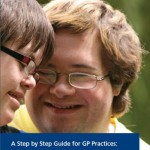
We have posted previously about health checks for people with learning disabilities, for example, the work of My Life My Choice, who looked at why it was that so few people with learning disabilities in their locality were getting access to annual health checks. We have also posted about the findings of a systematic review [read the full story…]
New NHS mandate identifies key objectives for people with learning disabilities
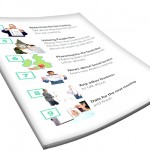
The NHS has this week published a new ‘mandate’ which sets out a number of agreements between the Government and the NHS Commissioning Board, which is responsible for improving health outcomes by supporting the commissioning of effective services. The mandate identifies five areas for improvement: preventing people from dying prematurely enhancing quality of life for [read the full story…]
Use of psychiatric diagnostic tool sharpens understanding of mental health issues in people with learning disability

Estimates of the prevalence of co-morbid psychiatric problems in the learning disability population have varied greatly in the literature, often bedeviled by a lack of clarity around case definition. The Diagnostic Criteria for the identification of psychiatric disorders in people with learning disabilities (DC-LD) was developed by working groups of the Royal College of Psychiatry [read the full story…]
Combination of behavioural and physiological measurements may help to better understand communication of people with profound learning disabilities

Supporting people with profound learning disabilities creates a communication challenge for those in the supporting role raising the question of how best to understand and respond when people do not use words to communicate. We have posted previously about resources available to help with this issue, for example national projects like Mencap’s Involve Me as [read the full story…]
End of life care for people with learning disabilities explored through experiences of support staff
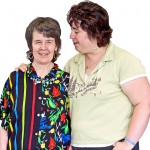
In the late 1990s, a group of people concerned about the quality of palliative care being offered to people with learning disabilities started a voluntary organiation now known as the PCPLD Network. The work of the network has raised awareness of the issue and also supported the research agenda into this topic. This current qualitative [read the full story…]
Multi-sensory environment reduced stereotyped behaviour for young people with learning disabilities
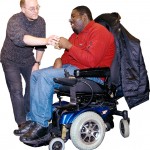
Multi-sensory environments or snoezelen rooms are used in a variety of services supporting people with learning disabilities although there has until recently been a paucity of critical evaluation of their effectiveness. Although there are a number of examples in the literature of a wide range of positive outcomes when Snoezelen and non-Snoezelen environments are contrasted, there [read the full story…]
